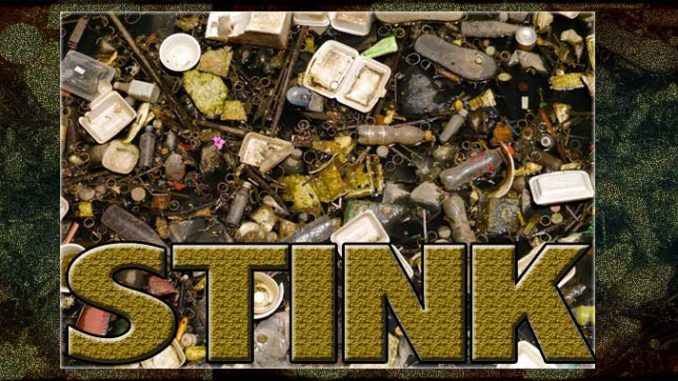
President Arroyo has inherited not only a garbage mess but a controversial garbage contract as well
There is no question that Metro Manila needs an urgent solution to its stinking problem. But government seems to be having a lot of difficulty finding one.
For years, administrations have been trying to find an acceptable way of disposing of over 6,000 tons of garbage collected daily from Metro Manila, tripping over legalities, questionable contracts, and even money. Last Jan. 30, 2002, the Supreme Court’s Third Division, upholding a lower court’s decision, ruled that a multibillion-peso waste management contract entered into by government and the Australia-based Jancom Environmental Corporation in 1997 was valid. But for the 25-year contract to be implemented, it needs the approval of the President.
The contract will award Jancom the right to operate the San Mateo landfill under the build-operate-transfer scheme and promises to ease the garbage problem. But smooth-sailing it does not appear to be for the waste management company that, according to a report by the Philippine Center for Investigative Journalism, has links to the Arroyo administration and some of her political allies.
First Take
As early as 1995, recommendations were presented to then President Fidel Ramos to privatize the San Mateo landfill. Dionisio de la Serna, then Cabinet officer for regional development for the National Capital Region, put in a good word for the company, at the time named Jancom International.
In a July 27, 1995, confidential memo to Ramos, De la Serna recommended that only Jancom be allowed to bid for the San Mateo site. Two other bidders, De la Serna said, could be allowed to bid for the Carmona site. De la Serna said the company offered the best financial package, superior technology, and most reasonable cost recovery figures. His recommendation was to fast-track the project in time for Ramos’ state visit to Australia. Without a competing bidder, the bids and awards committee could directly negotiate with Jancom without the mandatory 90-120 days for the bidder to prepare proposals. This memo virtually guaranteed Jancom the San Mateo contract.
Jancom proposed that it operate on the dumpsite an incinerator that could burn 3,000 tons of garbage daily and generate power. At the time, it seemed an attractive option in disposing of garbage that was threatening to swallow the metropolis. In 1997, the Ramos administration awarded the contract to Jancom, whose name had by then changed to Jancom Environmental Corporation.
Issues
But technical requirements stood in the way. The National Economic and Development Authority (Neda) did not approve the contract as required by the build-operate-transfer law because, among others, it did not have an Environmental Compliance Certificate and the endorsement of local government units.
Fees were another issue raised against it. The original proposal that Jancom submitted in 1995 indicated a tipping fee of $10. (This fee is the amount paid for every ton of trash thrown into a dumpsite.) This translates to a total of $156 million for 25 years. At the time, the exchange rate was still P28 to the dollar.
But in 1997, Jancom submitted a revised proposal indicating a tipping fee of $59. It also proposed that the energy generated from the incinerated garbage be sold to government at a guaranteed rate of $0.09 per kilowatt-hour. The total project cost would add up to $377.5 million. This is way over the World Bank’s own estimate of $10-$20 as tipping fee for incinerators. Jancom has said it is willing to lower its price to $32, which it says is closer to the average tipping fee of $30 in the United States.
Gideon Javier, son of the late Governor Evelio Javier and a member of Bantay Kontrata, a program of the Citizens National Network Against Poverty and Corruption, looks at these compromises as Jancom’s way of making sure that the multibillion-peso contract doesn’t slip out of its hands. Javier says that cost is another reason why Neda did not sign the contract. “Neda said, look, we looked for a landfill at $10 a ton, you came back to us with an incinerator at $59 a ton. We’re not approving this.”
Clean Air Act
Under the Estrada administration, the company had little luck as well. Robert Aventajado, then head of the Greater Manila Solid Waste Management Committee (GMSWMC), refused to honor the contract that the Estrada administration inherited. He cited the passage of the Clean Air Act of 1999, which prohibited the use of incinerators. Because of the passage of that law and the impending closure of the San Mateo landfill then, the GMSWMC under Estrada conducted another bidding, which was won by a different company, Pro-Environment Consortium.
Fortunately for Jancom, it got a Pasig Regional Trial Court to declare its contract valid [the decision later upheld by the Supreme Court]. In the meantime, reports say there are talks between government and Jancom to operate a sanitary landfill in San Mateo. In addition, there are proposals in the legislature to amend the Clean Air Act to allow incineration.
With a Supreme Court ruling in its pocket, all Jancom needs is President Arroyo’s approval.
Jet Damazo
This article appeared in Newsbreak on 18 March 2002.
Kyoto Review of Southeast Asia. Issue 2 (October 2002). Disaster and Rehabilitation

